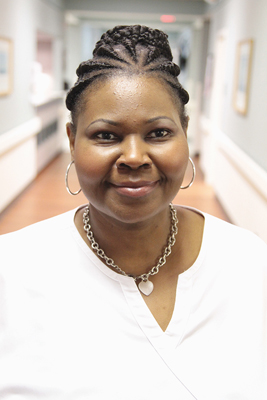What To Expect For A Colonoscopy Screening
Alexia Delaina Hall BSN, CGRN
St. Joseph’s/Candler

Smart Living: It is strongly recommended that people 50 years or older (or younger for people with certain risk factors such as family history or being African-American) have a colonoscopy screening. Once a patient has a consultation with their gastroenterologist and schedules the procedure, what can they expect?
Alexia Delaina Hall: First, the patient is put on a clear liquid diet, typically one day prior to the procedure. This means no solid foods. Beverages should be clear—drinks like ginger ale, Sprite, Coke, and coffee with no milk or cream. Patients will also fill their physician’s prescription for bowel preparation. The bowel prep is done the night before the procedure, and it’s very important for the patient to follow the instructions.
SL: Why is the bowel prep so important, and why aren’t the instructions always followed by patients?
ADH: Many people don’t like the taste and can also feel nauseated from drinking the bowel prep. And there is a large amount to drink—a routine prescription is one liter within an hour and then within six hours, another liter. If patients are having issues with nausea during their prep, they need to contact their physician’s office even if it’s after hours.
As difficult as it may be, proper bowel preparation is important because if the physician can’t see the colon clearly, the screening may be cancelled and the patient will have to start all over again at another time.
SL: What happens on the day of the procedure?
ADH: We ask patients to arrive between 60 to 90 minutes before their procedure time. All patients will need to have a driver because of the anesthesia they’ll receive for the procedure. We ask them to bring their medical history as well. Some patients will have to adjust their medications depending on other conditions they may have such as diabetes, high blood pressure, or cardiac problems. Part of our job is to make sure patients have been compliant with their physician’s orders regarding those medications.
SL: How long does the procedure take?
ADH: Typically the procedure, along with the recovery time as you are waking up from the sedation, can take a couple of hours. We will then give you and the person accompanying you a list of Do’s and Don’ts. Most people can resume their diet, but they cannot drive, go to work, or do anything strenuous for at least 12 hours. We teach them about any possible complications and to be aware of symptoms of bleeding, pain, or fever. The gastroenterologist will speak to either the patient, the person who’s accompanied the patient, or both, about what they found and what kind of follow-up is needed. Then you’re ready to go home.